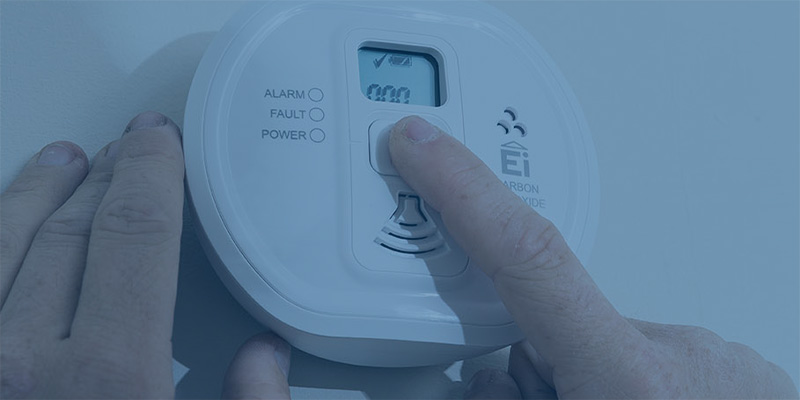
Representative example at 12 Months Interest Free Credit at 0% APR
£510
£51
£38.25
0%
Purchase price
Deposit
12 Monthly payment
Interest rate
Logic4training’s ACS Carbon Monoxide Testing course is designed to assess the competence of gas installers in determining ambient levels of carbon monoxide (CO) and the presence of carbon dioxide (CO2) in domestic properties.
Carbon dioxide/carbon monoxide testing is necessary for gas engineers responsible for suspected CO leak call outs in domestic properties.
Carbon Monoxide Testing Training Course Details
Cases of carbon monoxide poisoning are never far from the news making this ACS module a very important one for the safety of your customers.
Carbon monoxide/carbon dioxide testing training covers the identification of the appliance which caused the fumes using a portable electronic combustion analyser, typically used by a gas engineer who responds to the genuine report of a CO alarm being activated, or a report of fumes.
The scope of this qualification covers the guidance and procedures outlined in BS EN 7967 Part 1 to 4. It does not cover commercial premises and appliances, or the procedures to adopt following an incident reportable under RIDDOR.
This course provides training and assessment in the following areas:
- Ambient CO and CO2 testing
- Combustion performance analysis using electronic portable gas analysers on domestic gas appliances in dwellings following:
- Indication of fumes
- Smells
- Spillage or leakage of combustion products
- Carbon monoxide detector activation
CMDDA1 training and assessment candidates must hold a current Core Domestic Gas Safety (CCN1) qualification or a Core LPG Gas Safety (CCLP1) qualification or valid equivalent NVQ or QCF qualification, plus appropriate appliances.
A course manual is supplied during the course. Also operatives should be familiar with BS EN 7967 Part 1 – 4. Operatives who are registered with Gas Safe Register for their British Standards service can download copies of these documents.
Are you looking for GSR pads, stickers and labels? Get them here.
We also sell books and manuals for training and on-site reference here.
FAQs
This course is essential for qualified gas engineers who respond to suspected carbon monoxide incidents in domestic settings. Candidates must already hold a valid Core Domestic Gas Safety (CCN1) or Core LPG Gas Safety (CCLP1) qualification, or an equivalent NVQ or QCF, along with the relevant appliance qualifications.
Carbon monoxide is a colourless, odourless, and highly toxic gas. Regular testing is crucial because CO poisoning can cause serious health issues or fatalities. Gas engineers play a vital role in quickly identifying and addressing CO leaks, helping to prevent accidents and save lives.
The CMDDA1 course is based on the procedures and best practices outlined in BS EN 7967 Parts 1–4. It also aligns with the Gas Safety (Installation & Use) Regulations and relevant HSE guidance notes, ensuring compliance with UK gas safety standards.
Common indicators include the activation of a carbon monoxide alarm, unusual smells, visible fumes, or evidence of spillage or leakage of combustion products from gas appliances. Immediate testing by a qualified engineer is required if any of these signs are present.
Candidates are trained to use portable electronic combustion analysers, which measure ambient CO and CO2 levels and help identify the source of any leaks or unsafe appliances.
No, the CMDDA1 course is specifically designed for domestic properties and does not cover commercial premises or appliances. Separate qualifications and procedures apply for commercial settings.
Recent data shows that carbon monoxide poisoning remains a significant risk in UK homes, with several fatalities and hundreds of incidents reported annually. The importance of regular testing and prompt response to CO alarms cannot be overstated.
If CO is detected, the gas engineer must follow strict procedures to identify and isolate the source, ventilate the property, and ensure the safety of occupants. Further action may include reporting the incident under RIDDOR if required.

The Easier Way To Run Your
Heating & Plumbing Company



